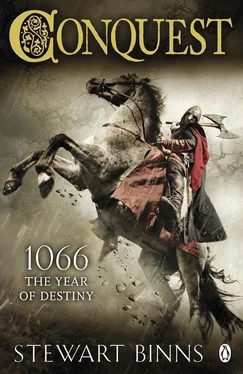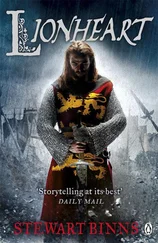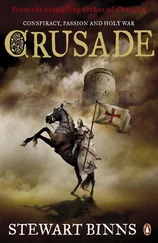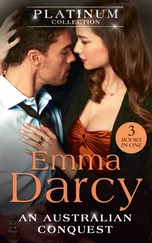Thurstan spoke eloquently in his own defence, arguing that the ‘messages’ in question had all come from William and that none had gone the other way. He also claimed that it was the duty of monks to listen to all God’s children, to hear their concerns and to offer advice; that was all his clerics had been doing. Where previously there seemed to be certainty about his guilt, Thurstan’s clever arguments and subtle oratory were creating a sense of doubt within the court.
Then, a young monk, one of Thurstan’s men, rose from the back of the cloisters. ‘My Lord…’
The entire court turned to see where the faint voice came from.
The boy breathed deeply and spoke more loudly, trying to suppress his nervousness. ‘… Abbot Thurstan has been plotting for many weeks to undermine the Brotherhood and reach a settlement with the King for the future of the abbey. He cares nothing for our Oath and thinks only of himself.’ The boy sat down, relieved to have found the courage to speak, but still fearful of the consequences of his words.
Earl Morcar addressed him directly. ‘What is your name, young monk?’
‘Rahere, my Lord.’
‘Thank you, Rahere. Thank you for your faith in the Brotherhood.’
Thurstan seethed with anger at Rahere’s denunciation. He sat and rocked like a child, his face contorted in rage. ‘The boy lies! How dare he impune my name!’
Earl Morcar shouted Thurstan down and stood to address the court. ‘Members of the Brotherhood, Thurstan, Abbot of Ely and twelve of his monks stand before you. They are accused of dishonouring our Brotherhood, defaming our Oath and undermining our cause in an insidious negotiation with the King. How do you judge them? Guilty or not guilty?’
A great cry of ‘guilty’ rang around the cloisters.
The Earl then turned to Hereward. ‘Hereward of Bourne, founder of our noble Brotherhood, what would you have us do with them?’
‘Execute them!’ was the cry from many throats. ‘Execute them! Execute them!’ The cries grew louder.
Hereward rose. ‘Like you, I am sorely tempted to have them cut down here and now. Indeed, there is much history between Abbot Thurstan and me, a past so grievous it would warrant a bloody end to our relationship. We now know he did not take the Oath honestly, but out of expediency, to protect his own interests. He and his monks have wronged us, and now we are entitled to punish them. But our Oath does not mention vengeance, it talks only of justice. Our purpose here in Ely is to foster tolerance and forgiveness. Therefore, let us abide by our Oath and expel them from our midst. Let that be their punishment.’
Earl Morcar looked around. Most of the men nodded their heads in agreement, and Morcar declared that Hereward’s suggestion had been accepted.
Edmund of Kent was delegated to expel the guilty clerics. He summoned three small rowing boats and, stripped to their loincloths, the traitors were bundled into the craft.
Thurstan was a pathetic sight: hunched, disfigured and pale as a ghost, he cowered in the bottom of the last boat to leave as the disgraced monks rowed themselves to the Norman positions.
By the time the autumn gales of October arrived, King William’s second causeway was almost complete. Hereward’s subversive tactics had stalled the King’s plans, but not enough to allow winter to bring respite to the defenders of Ely. He needed just a fraction more time – a salvation that would be denied to him, as it had been to England’s stricken King on Senlac Ridge.
Now it was only a matter of days before England’s final redoubt would face the second Norman onslaught.
Under the guardianship of Bishop Aethelwine, who had become the new Chaplain to the Brotherhood, Hereward issued orders that all the non-combatants of the burgh be given refuge in the abbey. A third of his defenders would mass behind the ditch and bank at Aldreth, the landing point for the King’s causeway, while the remaining two-thirds would be dispersed around the island to repel any waterborne attacks by William’s butescarls. If any of their positions were overrun, they were to fall back inside the walls of the burgh to make a final stand.
William’s logistical task was much more complicated. Not only had he to synchronize the massed attack along the causeway with the simultaneous amphibious attacks from the Fens, he also had to manage the complex positioning of the catapults and ballisti and coordinate the supply of projectiles for them. Hereward watched for over a week as the Normans manoeuvred themselves into position and William displayed his skills as a master of the art of military planning.
In the second week of October, the bustle of Norman activity had all but ceased and they were poised to attack. Hereward was convinced that hostilities would commence the next morning.
He called the Brotherhood together to address them.
‘Tomorrow we will stand together to face the King. We do so willingly, as free men. We have sent a message to him, to all Normans and to the whole of Europe, saying that we will not be intimidated by an unjust and cruel regime. Most importantly, we have sent a message to our fellow Englishmen – a message that will live in their memories and those of generations to come – that on this October day, in the year 1071 on the Isle of Ely, three thousand Englishmen stood and fought for justice. By our Oath, we stand together for our Brotherhood and for England!’
An immense roar resounded across the Fens, heard by William and every Norman for miles around.
That evening, Hereward’s family gathered. They went over the escape plan several times to ensure that everyone knew it by heart. Hereward then walked to the walls of Ely and looked out over the Fens.
The night was black with menacing clouds, and the wind blew with a piercing chill. There was nothing left to do, other than allow the circumstances he had set in motion months earlier to come to their conclusion. In the protracted game of chess he had been playing with William, he had been put into check for the last time.
William’s demeanour had not softened; the many pleas to him to loosen the vicious grip he had on the neck of England had been to no avail. His cruelty still knew no bounds and there was no hint of compassion in his heart. Nevertheless, Hereward believed it had been worth the struggle. Even if the King remained unmoved, what was happening on the Isle of Ely had lit a powerful beacon to signal that men do have rights and that they are entitled to defend them, even against their sovereign lord. The message of the Talisman of Truth was clear: no evil is so great that it cannot be overcome, not even that of the Devil.
Hereward was about to return to try to get some sleep, when Gunnhild and Estrith appeared.
As usual, they spoke as a duet. ‘We do understand what you are trying to do, Father; it’s just that we don’t want to lose you… We have lost our mother… We don’t want to lose our father as well.’
He knelt down to look them in the eye. ‘One day you will have children of your own and will understand that sometimes things have to be done that are not concerned with the needs of the present, but the well-being of future generations. Everything that has happened here – the Brotherhood, our Oath, and the fight against the King’s cruelty – has a single aim: to make sure that those terrible things that happened in Bourne, to your grandmother and grandfather and all the others, never happen again. Our deeds are also a tribute to your mother’s memory. Torfida shared this burden with me from the very beginning, and her wisdom still guides me in my thoughts and helps me in my moments of doubt.’
‘We know, Father.’ They held him tightly.
After a while, he carried them back to their tent and put them to bed. As they kissed him goodnight, he could see the anxiety in their eyes; if ever there was a moment to abandon his cause, this was it.
Читать дальше












